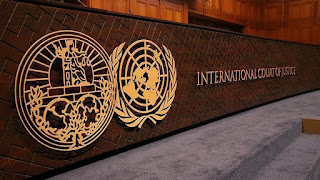Search This Blog
London's Global Law Tutors, Legal Education Consultants and Legal Career Consultants, available in global cities like London, New York, Hong Kong, Singapore, Sydney, Manchester, Birmingham and Oxford, covering the following law courses and law exams: LNAT, LSAT, LLB, JD, PGDL, LPC, SQE 1, SQE 2, BTC, BPC, BPTC, BTT, LLM, BCL, BAR EXAMS (US, Canada, UK), MPhil and PhD in Law. Our Law Blog regularly publishes articles on recent legal developments at the forefront of legal practice and education.
Posts
Showing posts from May, 2020

Posted by
London Law Tutor
“The ICJ is not truly a court. While its judgments may technically be enforceable, no State expects enforcement to actually happen. It is, instead, best understood as a forum for the mediation of State-State disputes.” Critically discuss.
- Get link
- Other Apps

Posted by
London Law Tutor
Critically discuss, with reference to the international conventions and domestic laws addressed in class or in the assigned readings, how the United Nations Convention Against Corruption has improved on previous approaches to the regulation of international corruption, and how might it nonetheless still itself be improved.
- Get link
- Other Apps

Posted by
London Law Tutor
The criticisms of the ILO’s adoption of the “Core Labour Standards” made by Philip Alston. What are Alston's criticisms, and how would you defend the ILO against them?
- Get link
- Other Apps